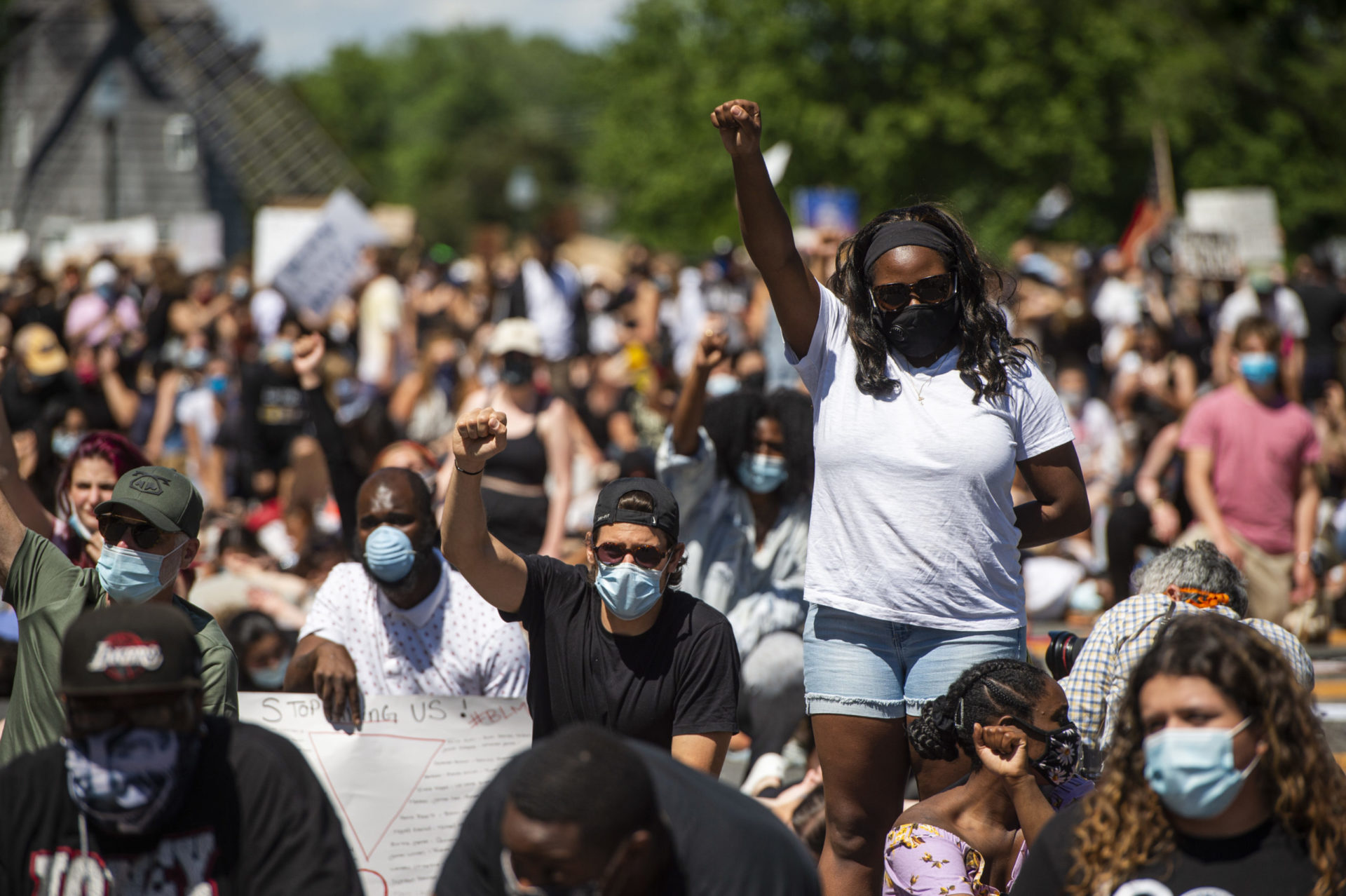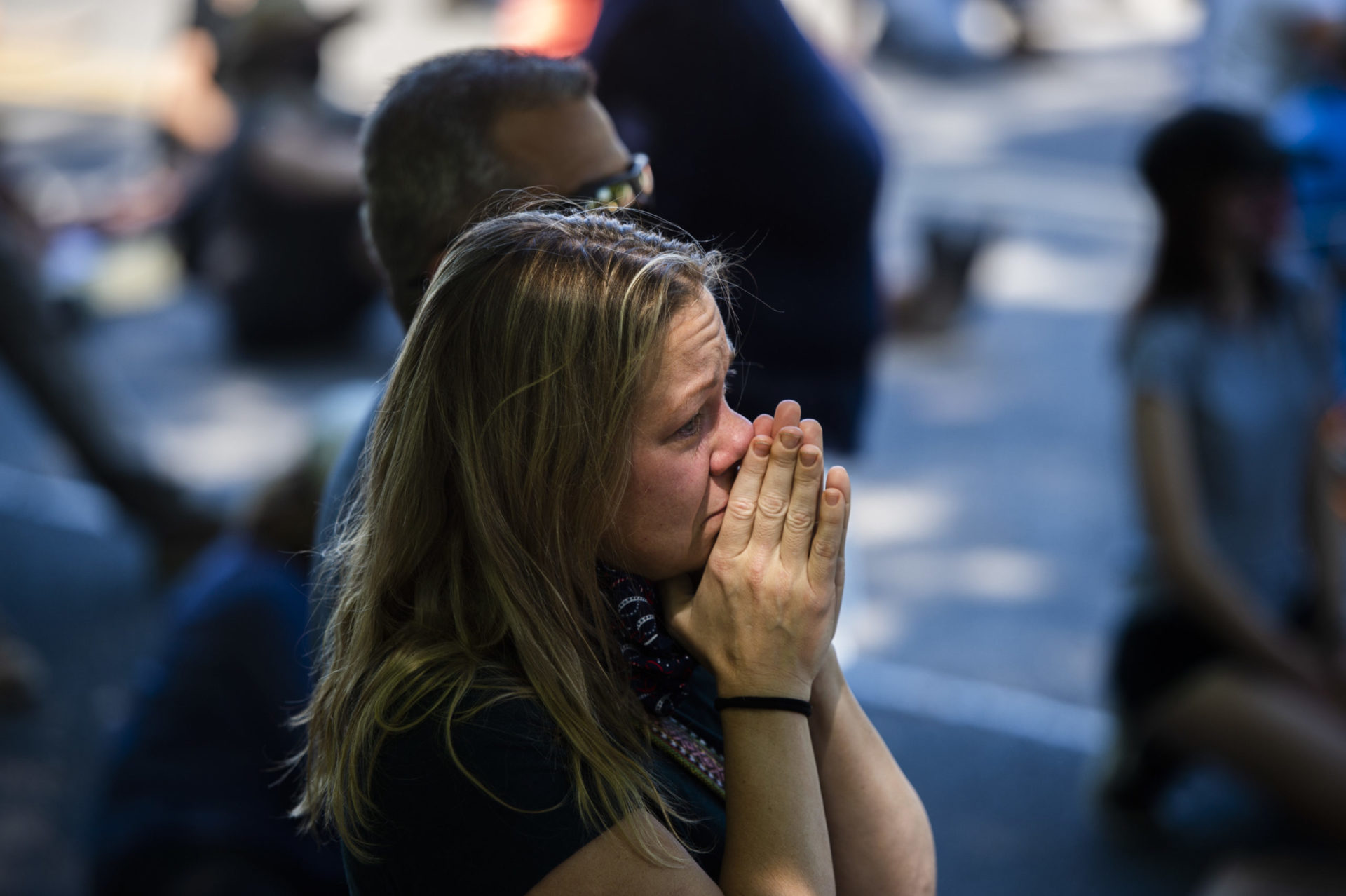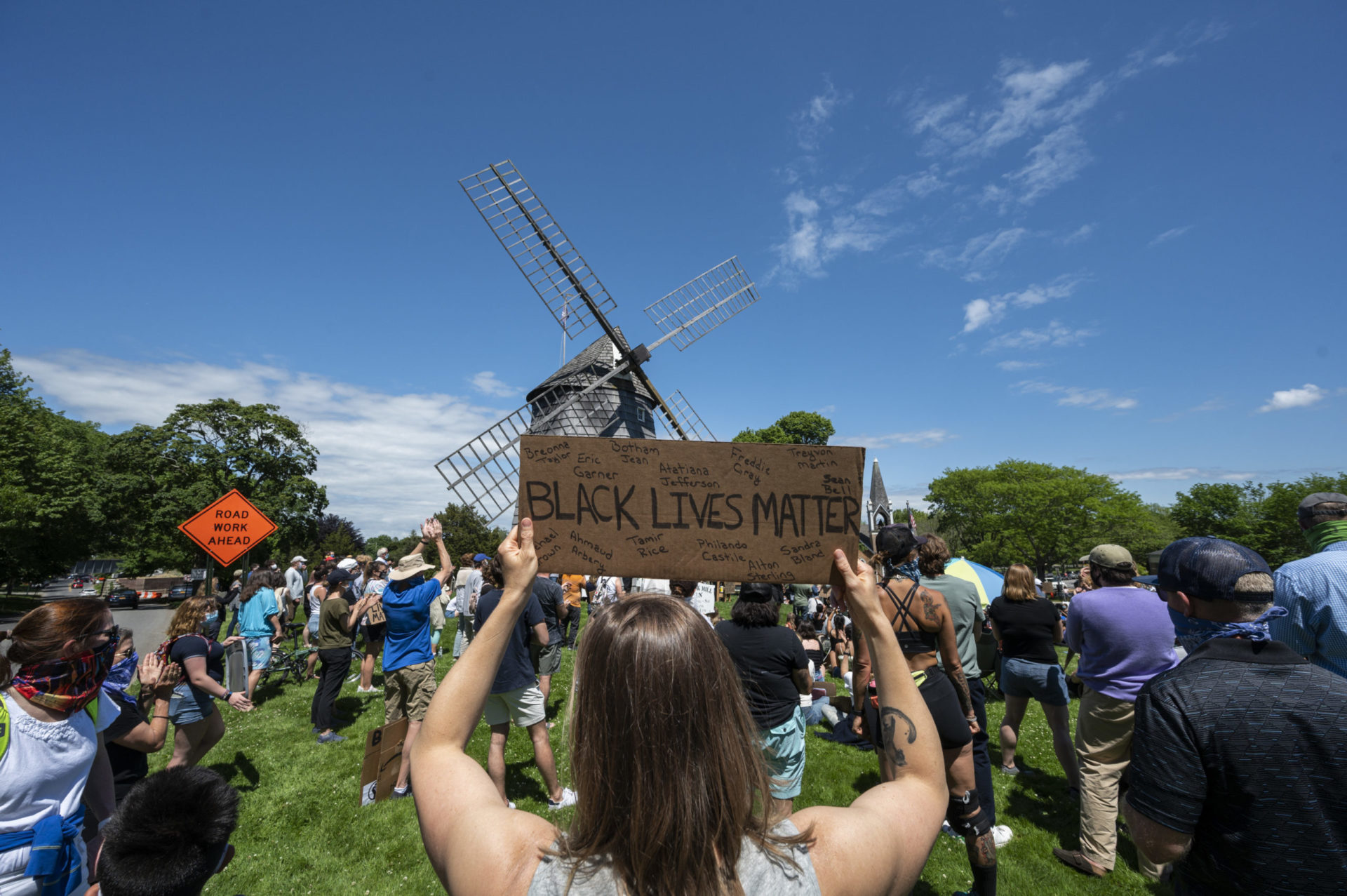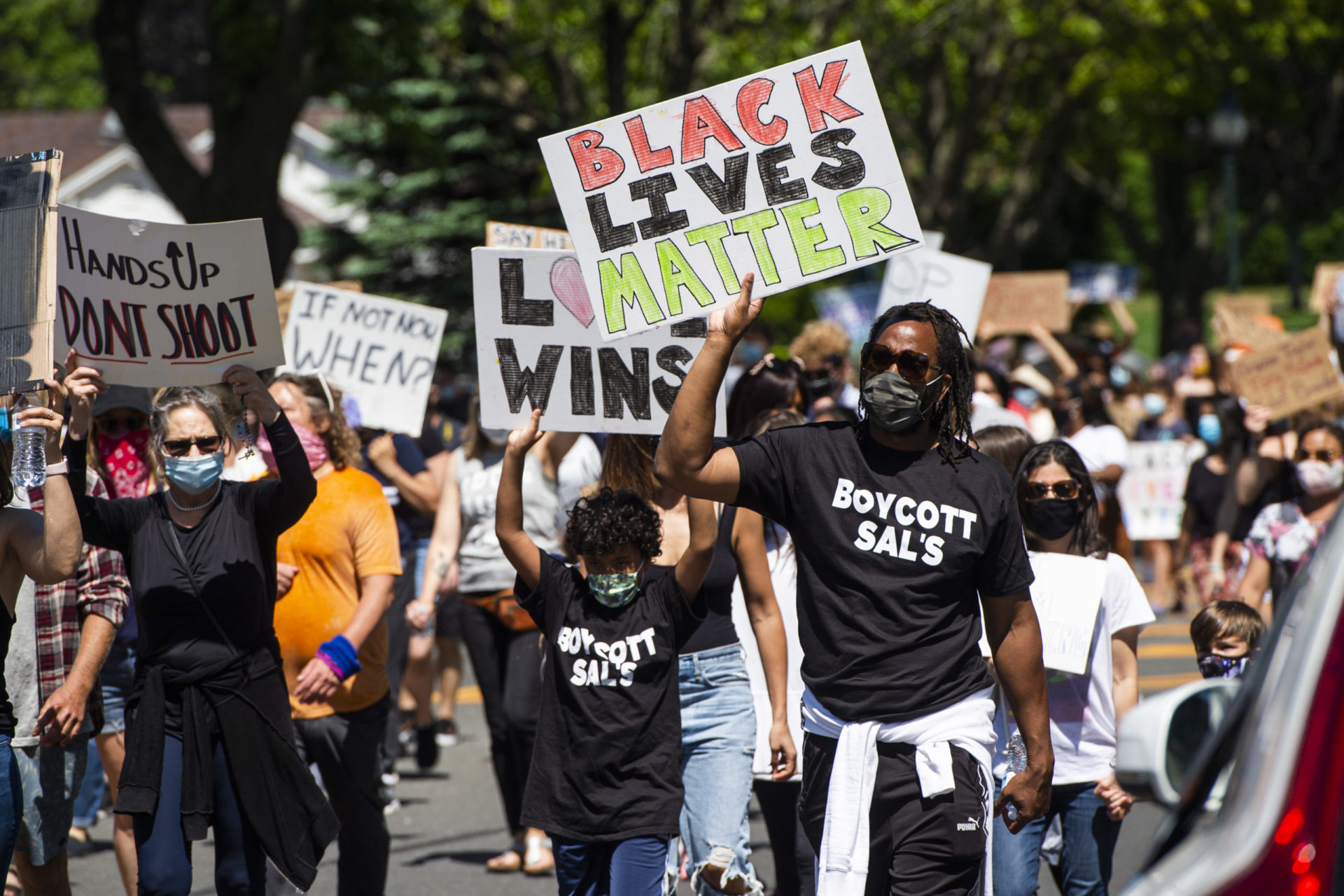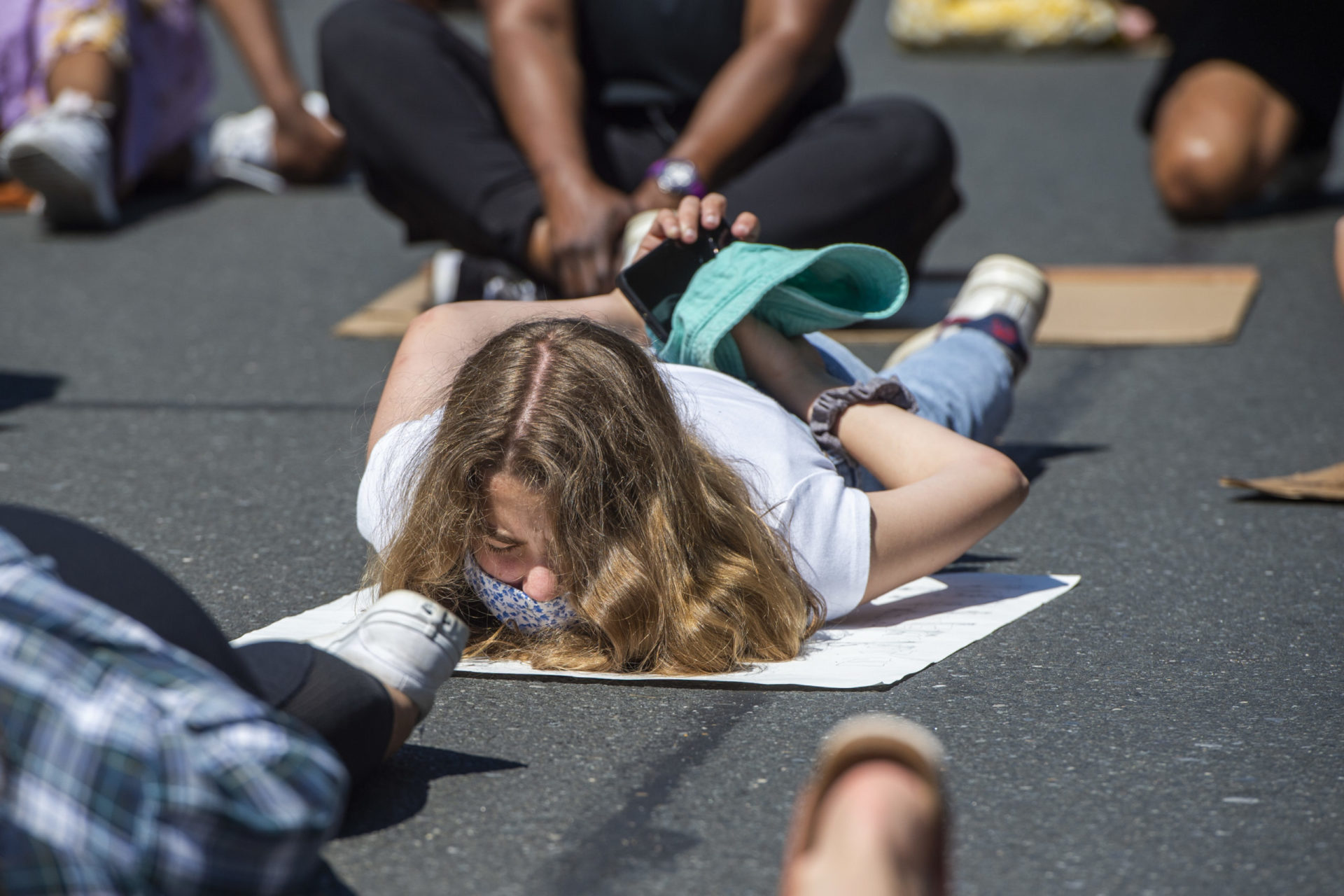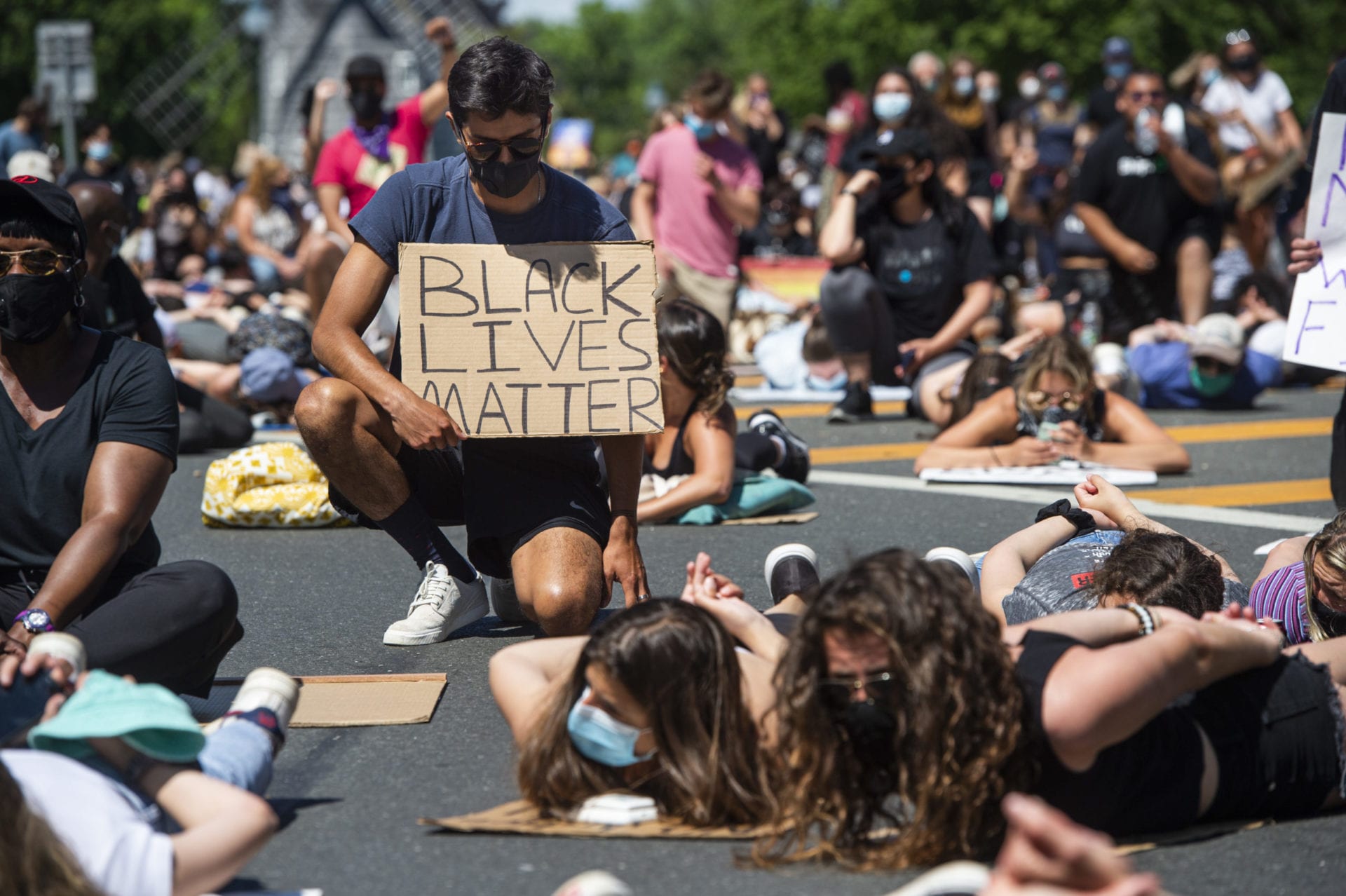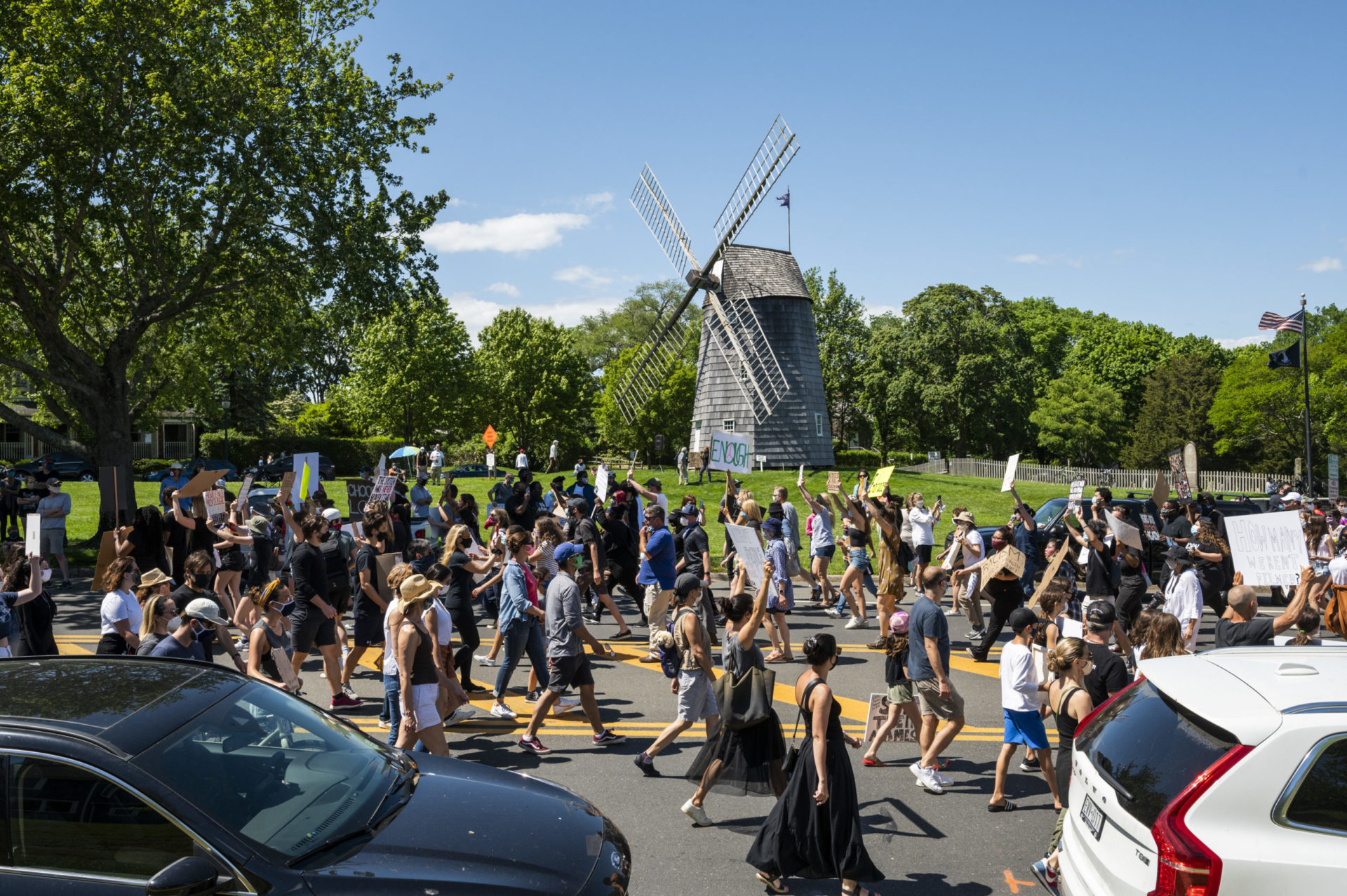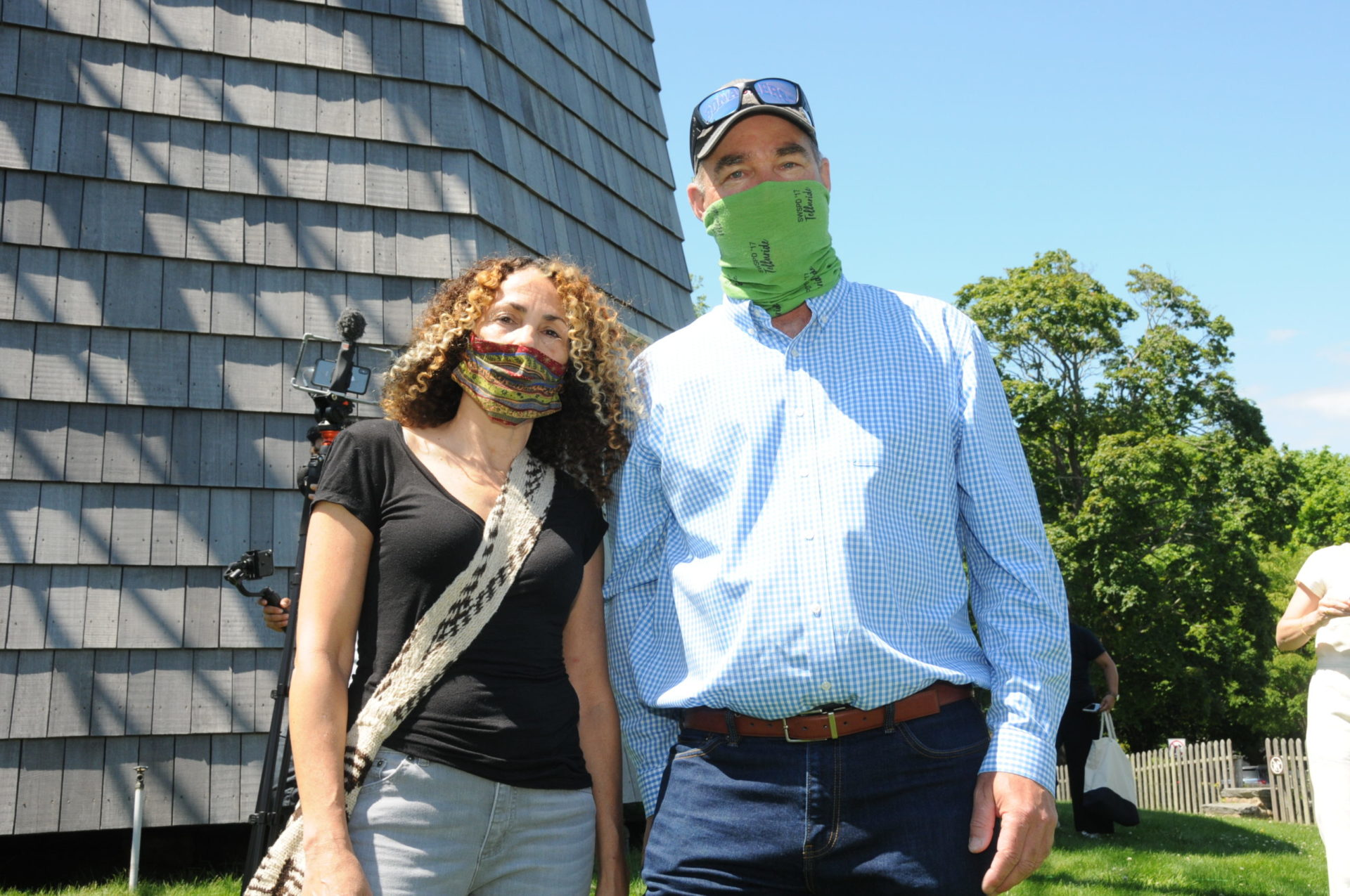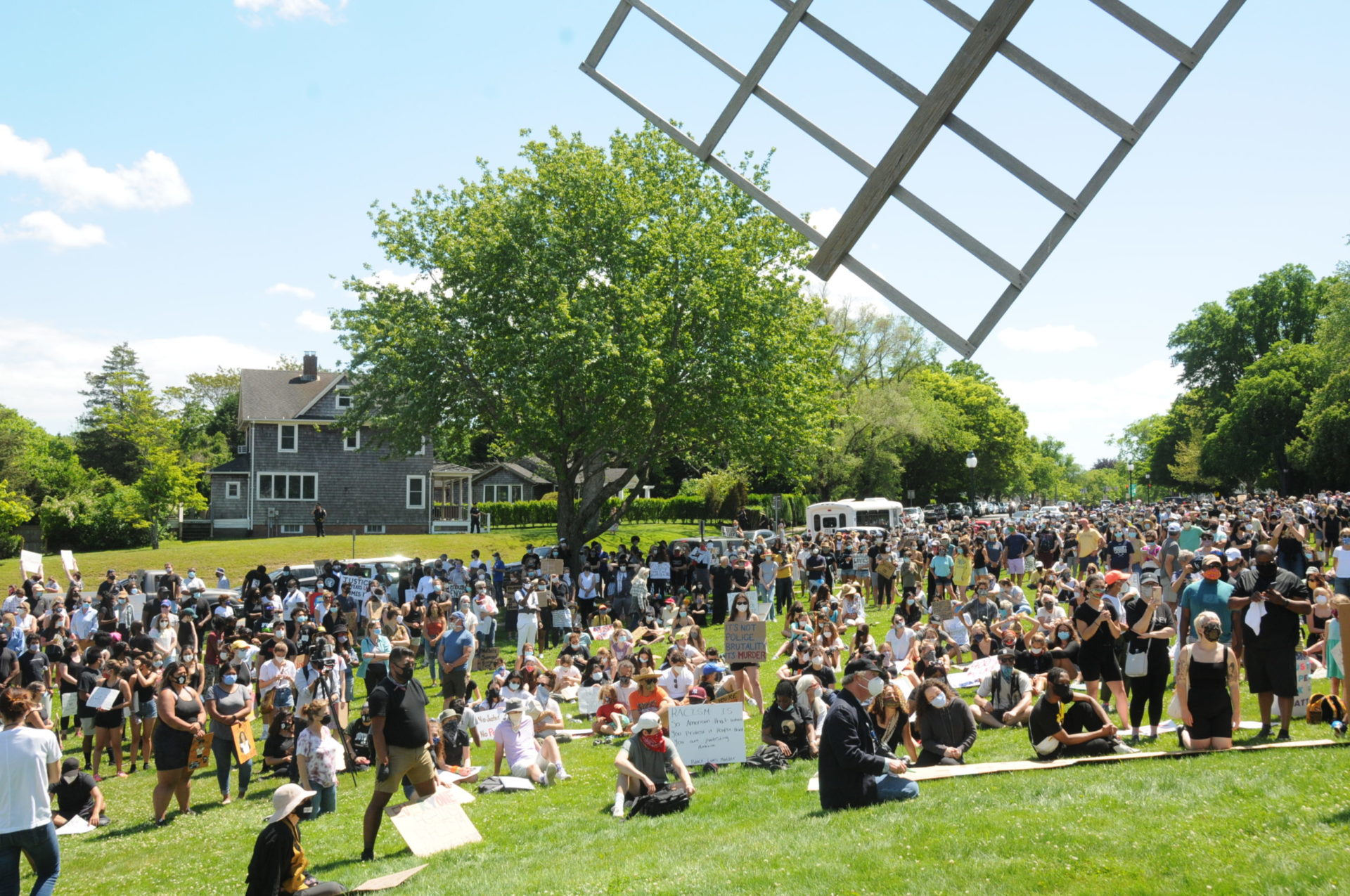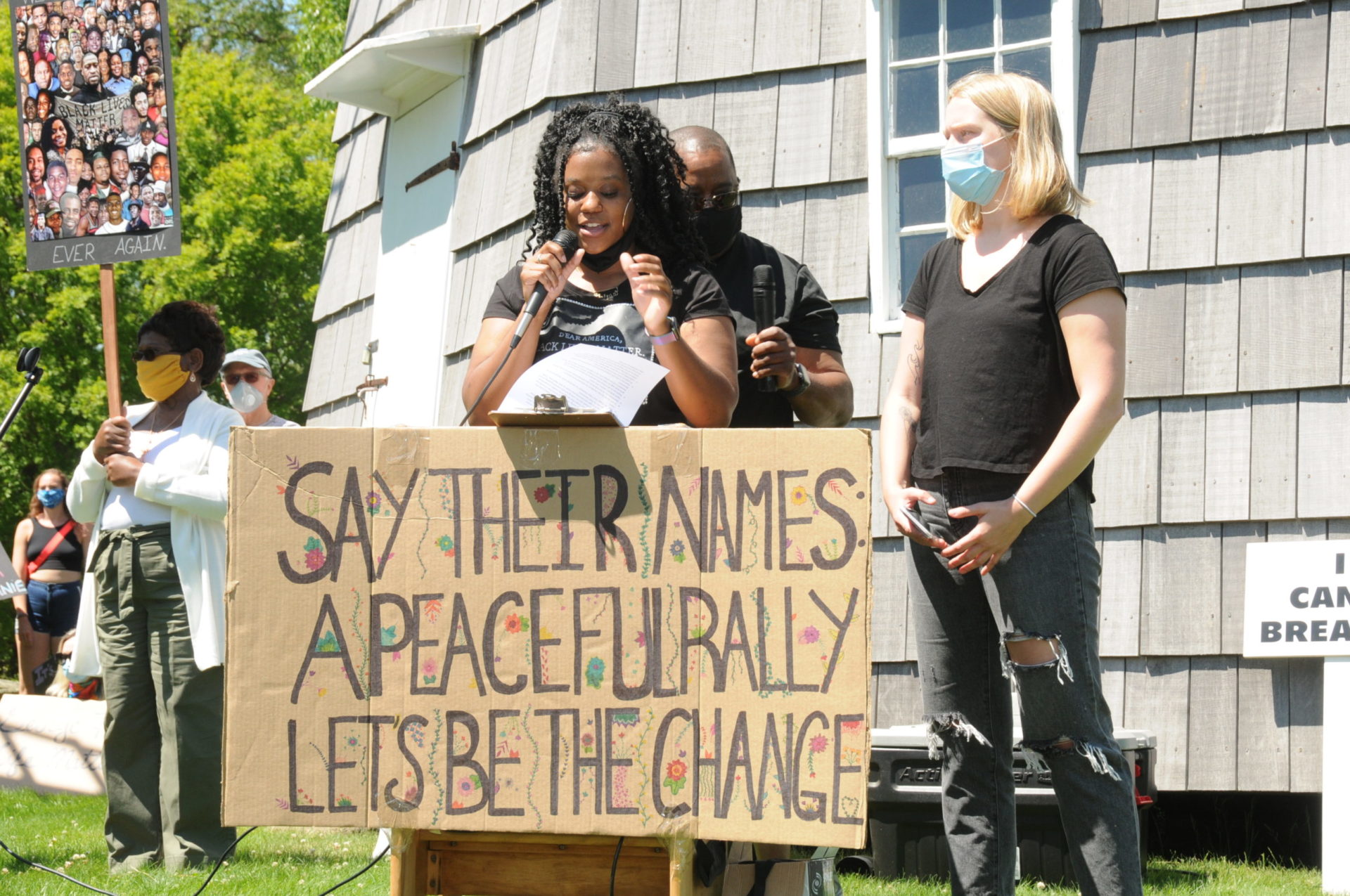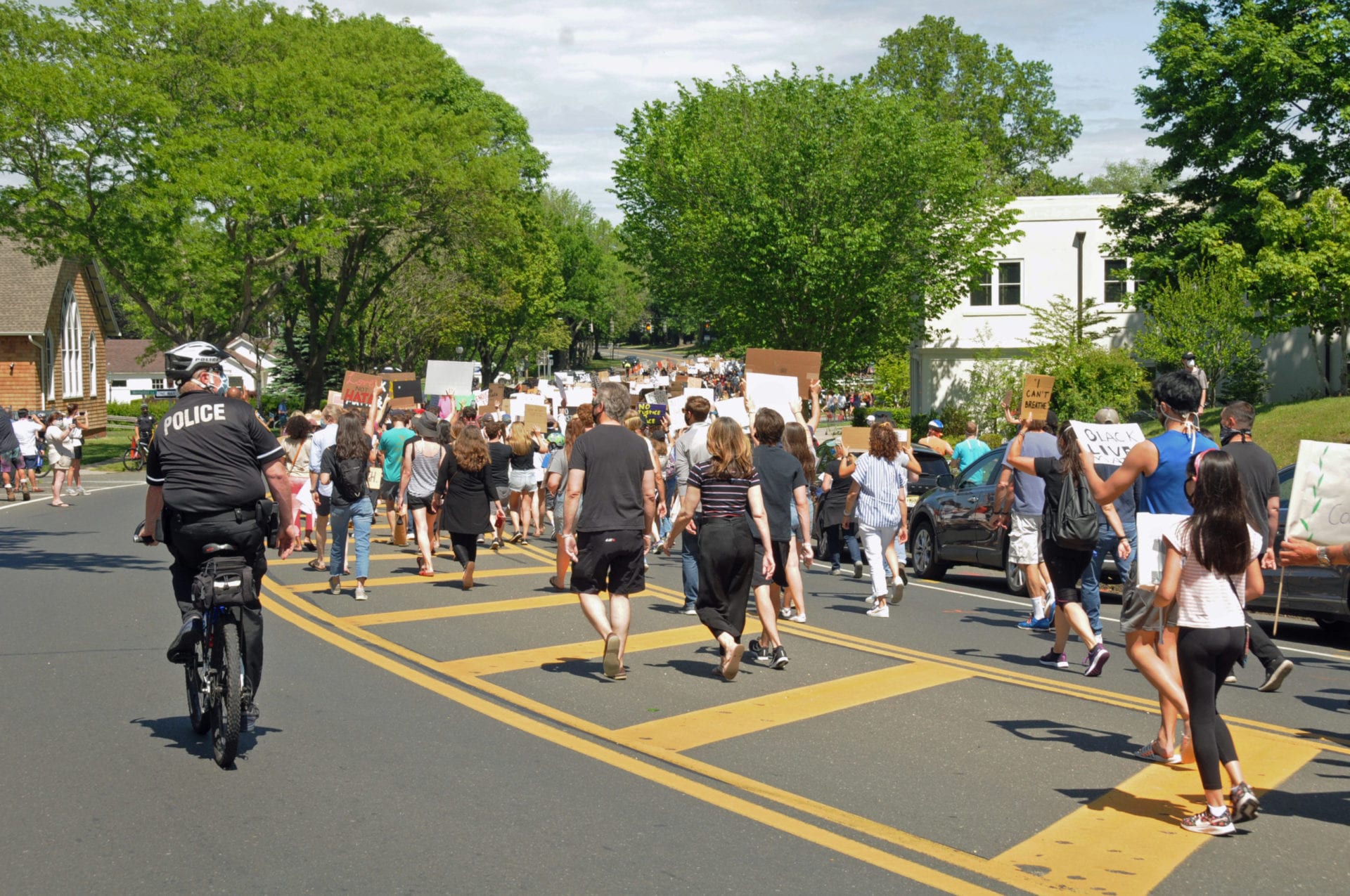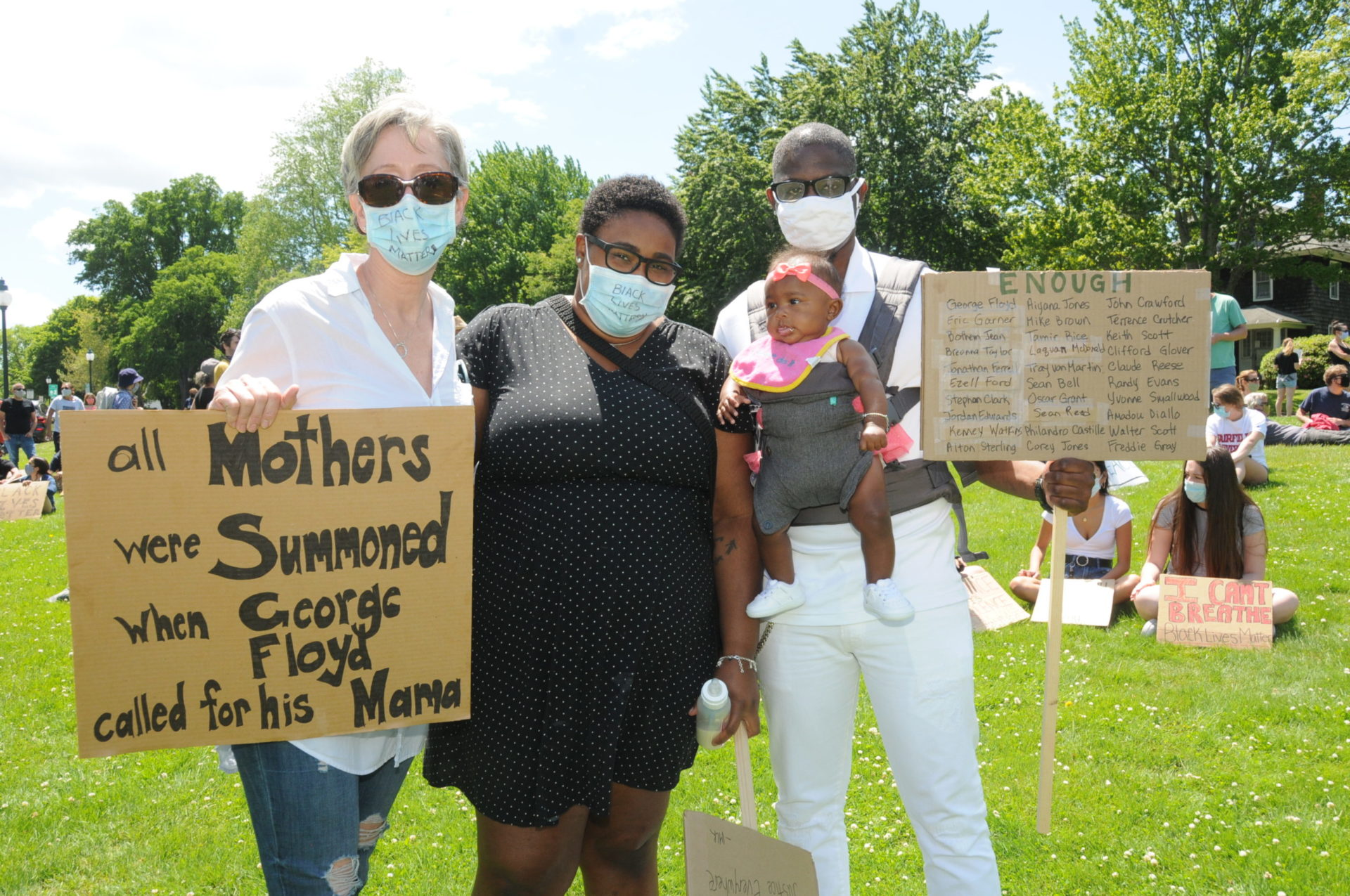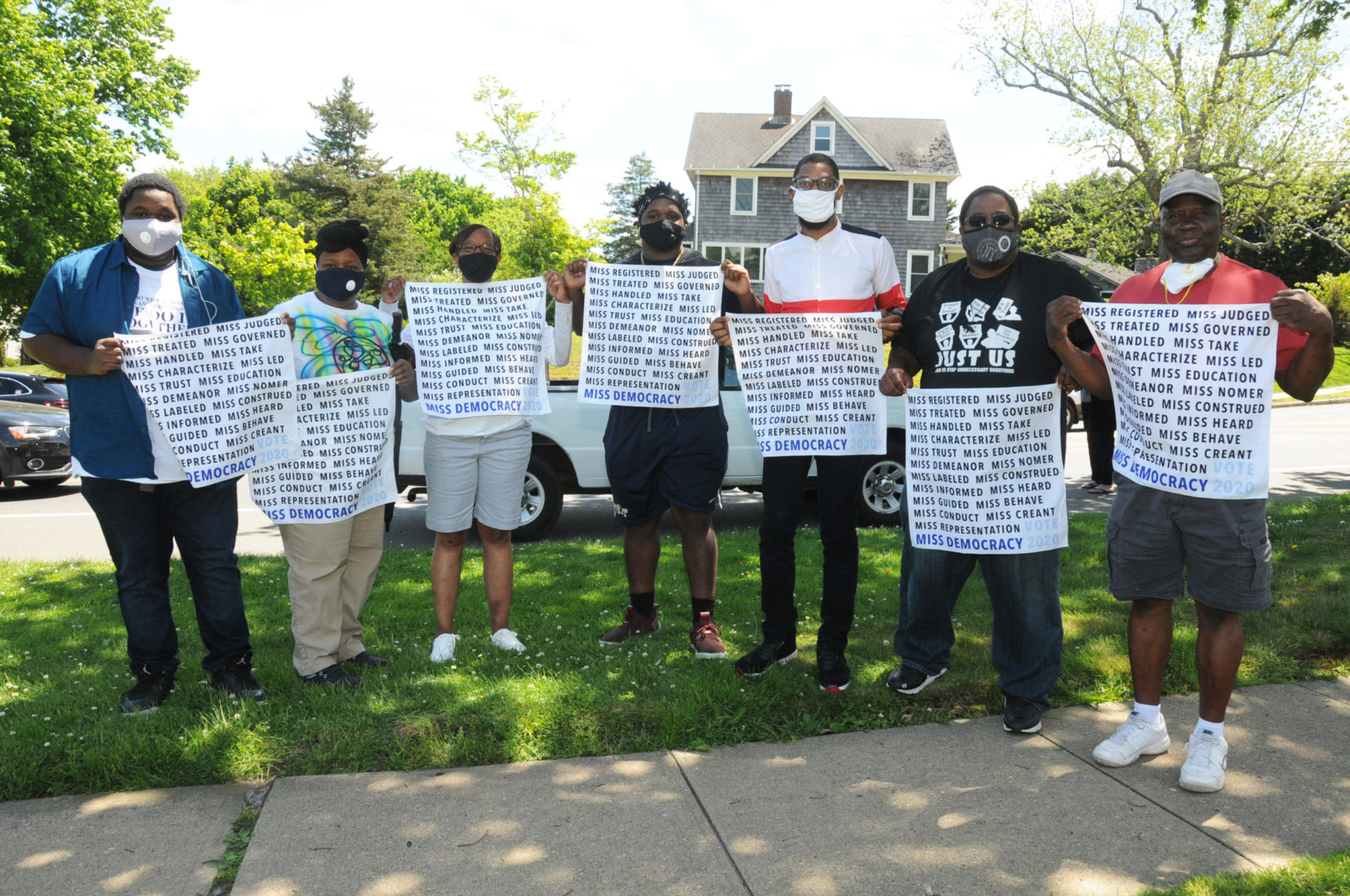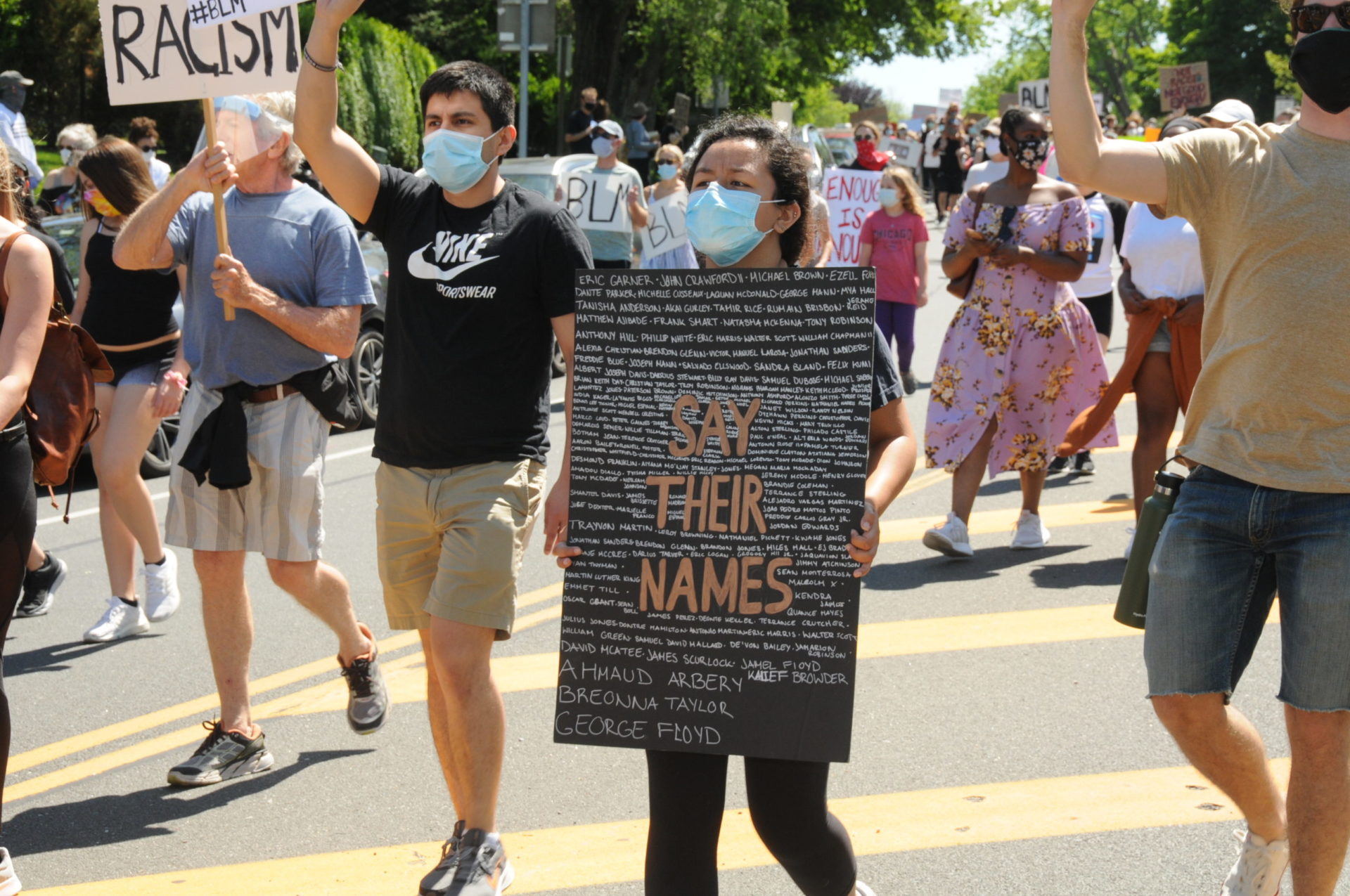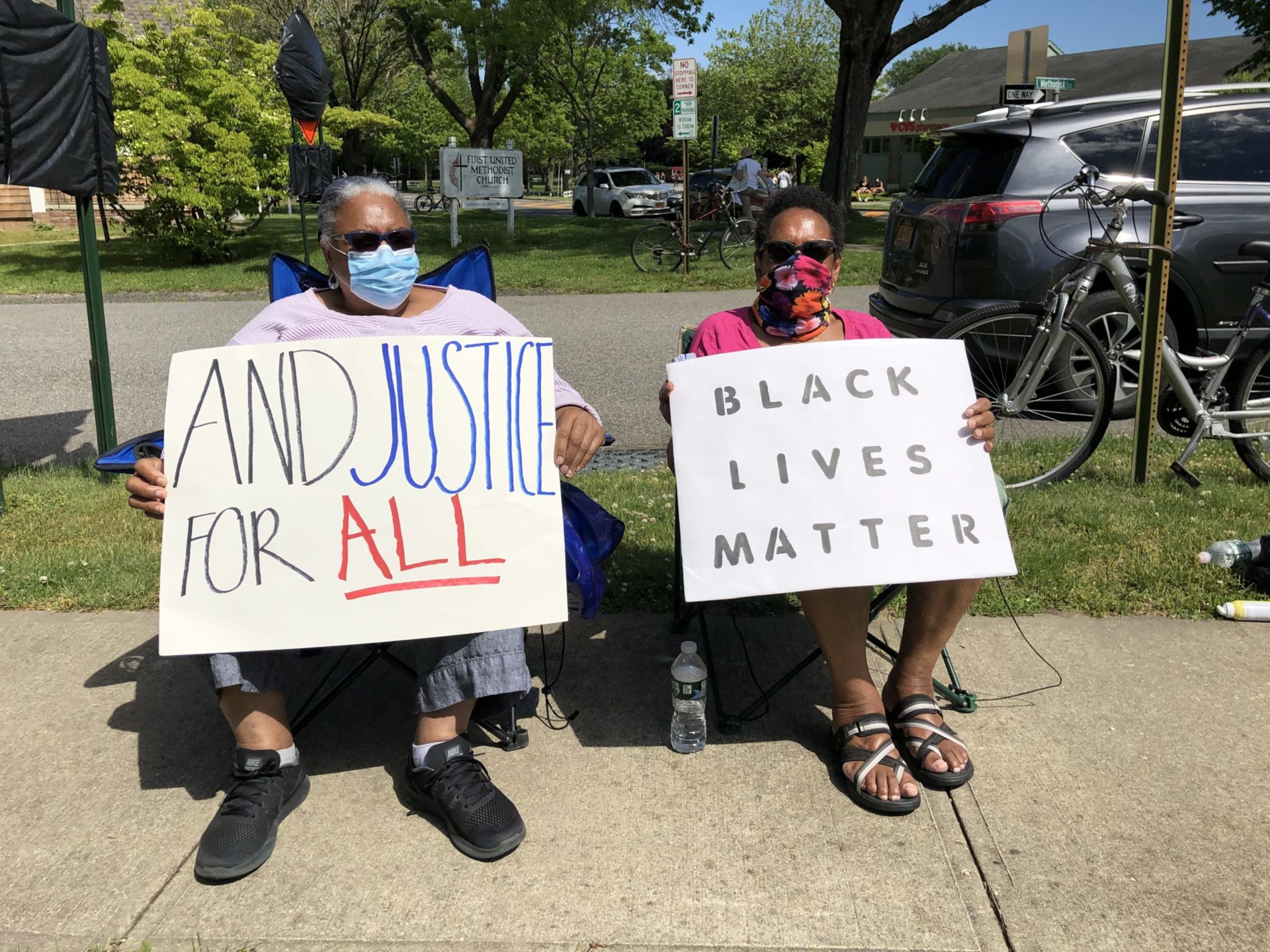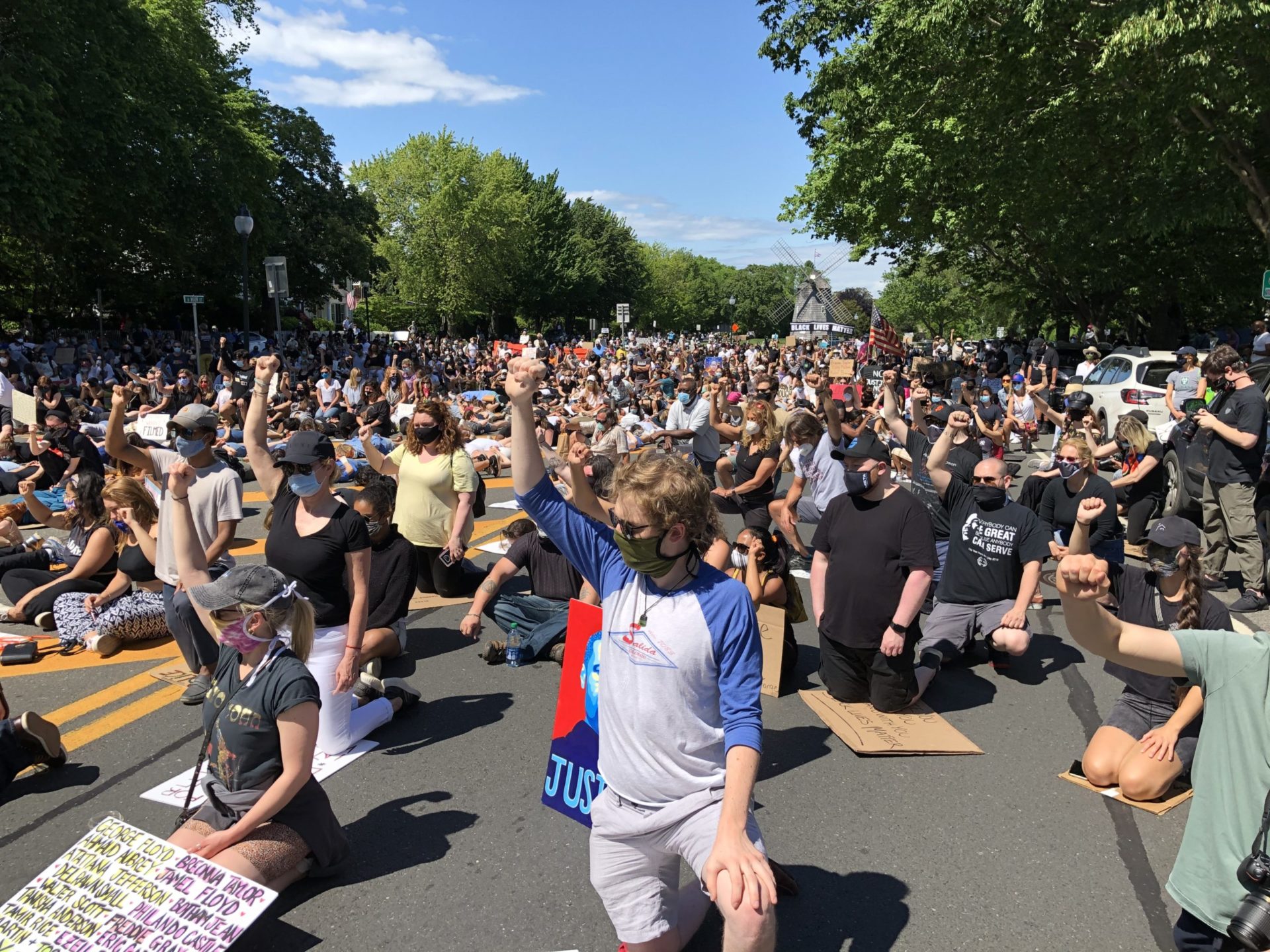East Hampton Protestors Demand 'Stop The Hatred'
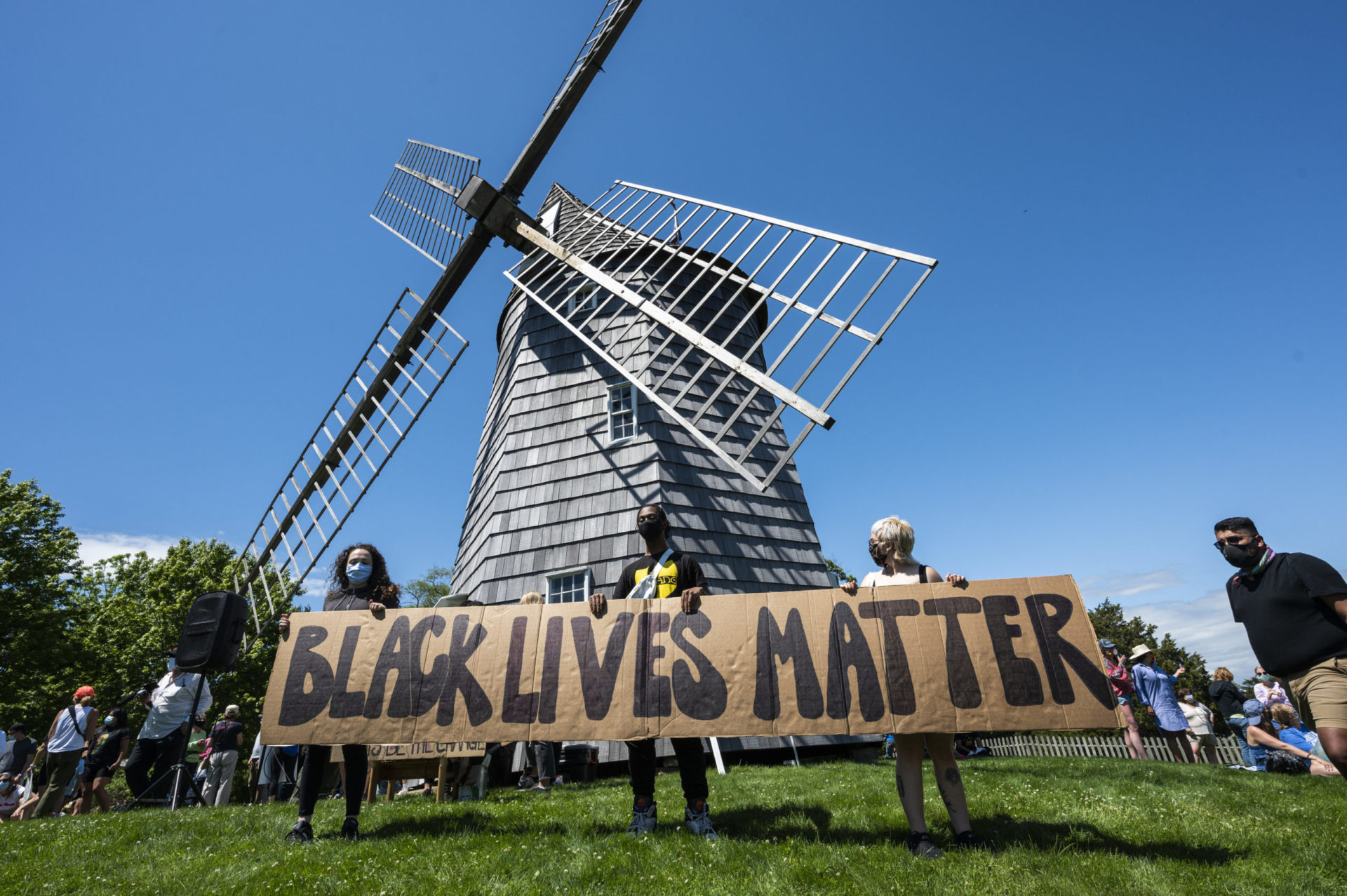
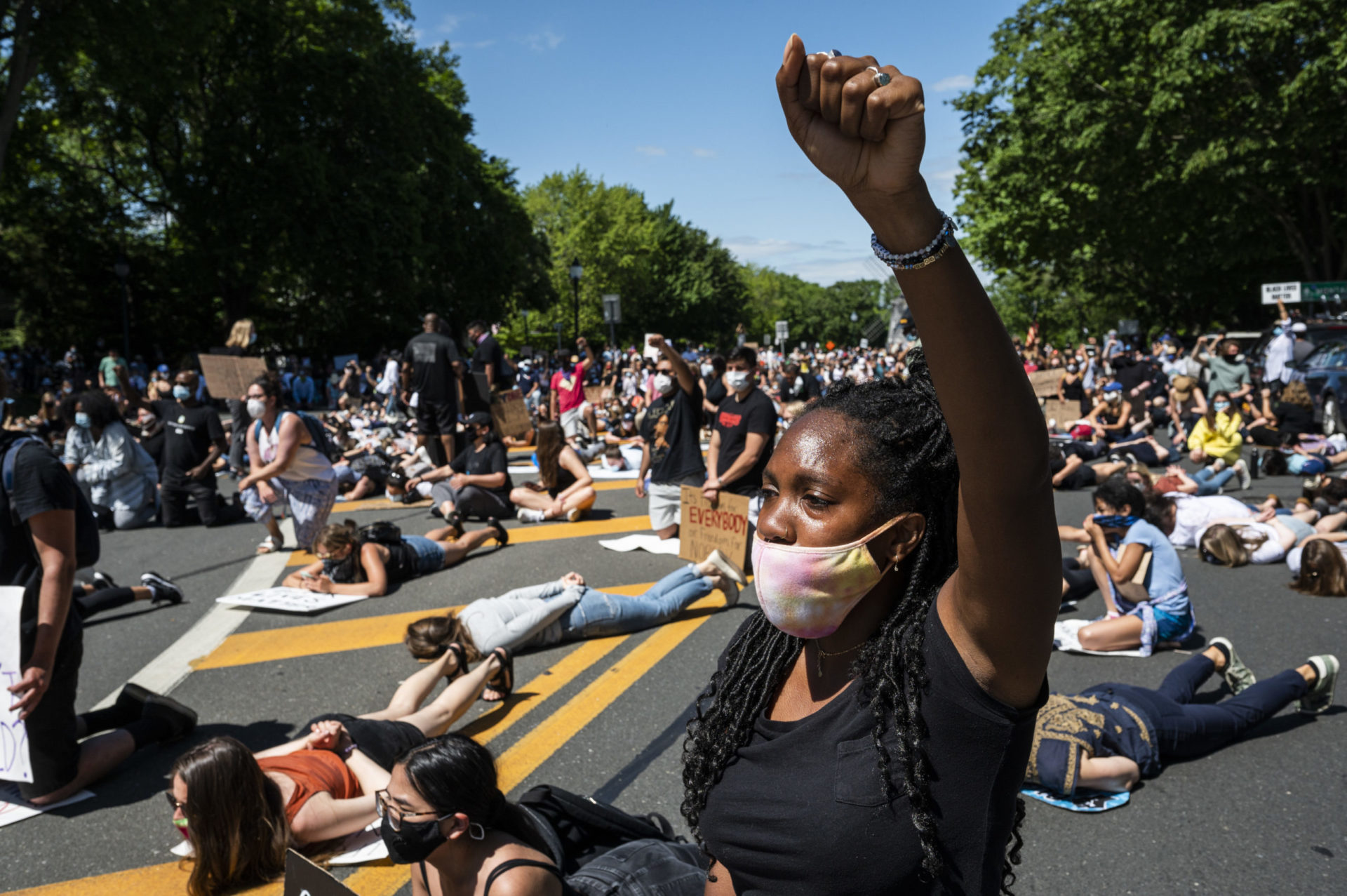
Taliya Hayes stood under the shadow of the Hook Windmill in East Hampton Village listing things she, as a black woman, feels insecure doing. She did this while standing next to her white friend and East Hampton High School Class of 2016 classmate Anna Hoffman.
“I can wear a hoodie,” Hoffman said, to which Hayes responded: “I cannot.”
“I cannot breathe,” Hayes added. She was referencing George Floyd’s last words before his death while in the custody of four Minneapolis police officers May 24.
The pair organized “Say Their Names: A Peaceful Rally” Sunday that lasted two-and-a-half-hours and drew tons of support for the Black Lives Matter Movement.
During the demonstration, the crowd of more than 1000, according to police, marched from the Hook Mill down Gay Lane, then back up to Pantigo Road, all the way to the intersection of Main Street and Newtown Lane. There, protestors laid down on the ground for 8 minutes and 46 seconds, the same length of time Floyd, a black man, was subdued by an officer who placed his knee on the back of Floyd’s neck.
Willie Jenkins, who helped organize several other protests on the South Fork last week, asked those in attendance not to change their slogan to “All lives matter.”
“I just want you to wake up, open your eyes, and be aware,” he said. “Because when you guys say something, it means something — and our voices start being heard.”
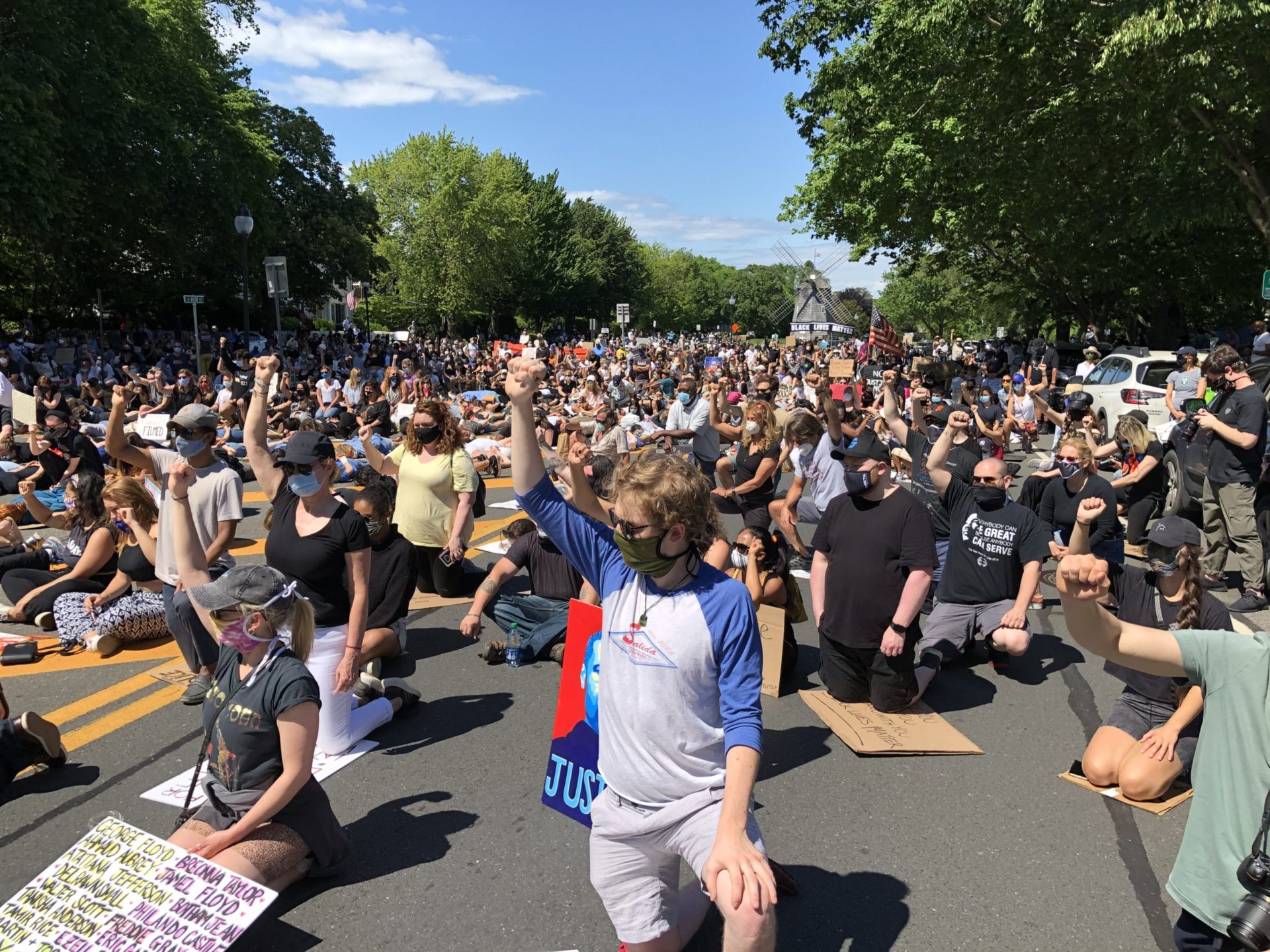
Some of the crowd, predominantly white, laid face down on Main Street, some clasping their hands behind their backs as if handcuffed. Others took a knee, and raised a clenched fist in the air.
Hayes said the reason there is more attention on the issue is because of the political climate the world is now in.
“The person that we have in the White House is definitely contributing to the tension that we have in our country right now,” she said. “We are just tired. We are just done. We are in a new century. Black people have been fighting for their rights for centuries. Enough is enough.”
Educators, and religious and community leaders also showed support and bestowed their wisdom on the crowd.
“If I am good enough to be your child’s nanny . . . If I am good enough to be your maid, if I am good enough to make sure your child knows their ABCs while you meet with your CEO on your Zoom call, than I am good enough to be respected as an African American,” said Travis Wilkins, who grew up in Bridgehampton and now teaches middle schoolers in Richmond, Virginia.
Rabbi Debra Stein, cantor at the Jewish Center of the Hamptons, said the white perception of racism differs from the reality black Americans are experiencing.
While many whites might believe that “some of this has been put to bed, it hasn’t,” she said. “It hasn’t been put to bed. We can’t regulate racism away. We can’t say, ‘Don’t put your knee on someone’s neck.’”
The answer, she said, is “to stop the hatred.”
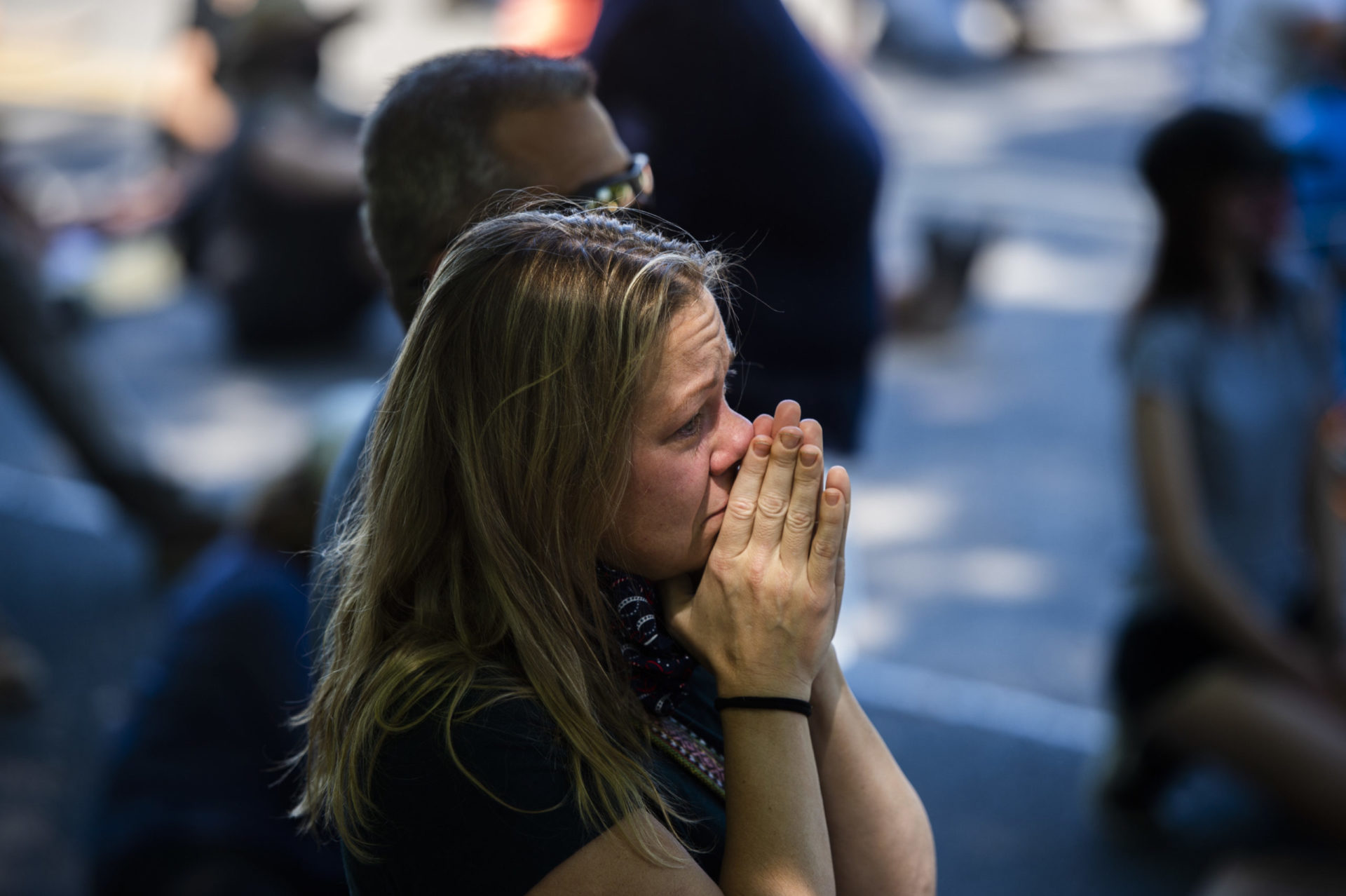
Reverend Leandra Lambert, the curate of St. Luke’s Episcopal Church in East Hampton, said on the sunny afternoon “it is a beautiful day to be alive.”
“And everyone deserves the right to be alive,” she said. “Time’s up, and we have work to do.”
Lambert, who is black, read the names of her relatives who have struggled at the hands of racism in America.
“I am somebody. I matter,” she said. “My life matters. My story matters.”
“There are good police officers, and I thank God for the good ones. But they are also part of a system that is corrupt,” she continued. “We have a responsibility to break it down and to build something new. Something that is just. Something that is better. Something that is reflective of the more perfect union.”
Reverend Dr. Walter Silva Thompson Jr., of the Calvary Baptist Church, said he’s happy to see Americans of all races come to the realization that there is still work to be done, but also said he’s tired after all the attempts on this long struggle.
“I have seen police brutality. I have been the victim of racism and discrimination because of the color of my skin,” he said. “Black lives, white lives, yellow lives, brown lives all matter because we are human beings with a soul, with something to contribute to the upward mobility of life. We need to know our history.”
He said, standing in front of the Hook Windmill, that the wood to build it was hewn by an African American slave.
“There are so many unnamed, unknown who have made great contributions to the building of our nation and our country,” he said. “One of the greatest liabilities in history is not the vitriolic words of bad people, but the appalling silence of the good.”
